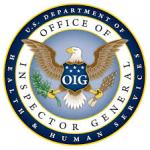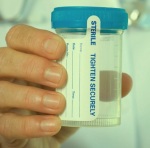 Florida physicians are being approached to become owners of pharmacies to which they may refer, often compounding pharmacies, but may be unaware of the regulatory issues involved. Physicians need to be aware of the core laws that apply, which include the Florida Patient Self Referral Act (FPSRA), the Florida Anti Kickback Statute, the Patient Brokering Act and the Federal Investment Interest Safe Harbor.Continue reading
Florida physicians are being approached to become owners of pharmacies to which they may refer, often compounding pharmacies, but may be unaware of the regulatory issues involved. Physicians need to be aware of the core laws that apply, which include the Florida Patient Self Referral Act (FPSRA), the Florida Anti Kickback Statute, the Patient Brokering Act and the Federal Investment Interest Safe Harbor.Continue reading
OIG Blesses Medigap Discount Policy for In-Network Hospitals
 By: Jackie Bain
By: Jackie Bain
On February 20, 2014, the Office of the Inspector General posted Advisory Opinion 14-02. The Advisory Opinion reviews the following scenario for compliance with the Federal Anti-Kickback Statute, 42 USC § 1320a-7b. Under the proposed scenario, a Medigap insurance provider participates with a preferred provider organization (“PPO”) which contracts with hospitals (“Network Hospitals”). The Network Hospitals discount Medigap policy-holders’ inpatient deductibles up to 100%. In exchange for each discount, the Medigap plan pays an administrative fee to the PPO. The Medigap plan also pays a portion of the discounted savings directly to the policy-holder who stayed at the Network Hospital.Continue reading
Montana Hospital Fined for Payments to Doctors
 The Justice Department settled a case against a Montana hospital for nearly $4 Million based on allegations that the hospital improperly paid physicians who referred to the hospital. The allegations arise out of a medical office building project in which the hospital and referring physicians were co-owners. The particular areas of wrongdoing targeted by the DOJ included below market lease rates. The case is odd in that (1) it is not the usual “pay for referral” sort of case traditionally pursued against parties, and (2) ensuring fair market value and commercial reasonableness in rental arrangements of healthcare providers is a key element in terms of compliance.
The Justice Department settled a case against a Montana hospital for nearly $4 Million based on allegations that the hospital improperly paid physicians who referred to the hospital. The allegations arise out of a medical office building project in which the hospital and referring physicians were co-owners. The particular areas of wrongdoing targeted by the DOJ included below market lease rates. The case is odd in that (1) it is not the usual “pay for referral” sort of case traditionally pursued against parties, and (2) ensuring fair market value and commercial reasonableness in rental arrangements of healthcare providers is a key element in terms of compliance.
District Judge Hits Halifax Hospital with $26M Fine in Qui Tam Suit
 A November 13th order from U.S. District Judge Gregory A. Presnell hit Halifax Hospital in Daytona Beach hard and has implications for all physician bonus compensation arrangements. The background of the whistleblower case involves:Continue reading
A November 13th order from U.S. District Judge Gregory A. Presnell hit Halifax Hospital in Daytona Beach hard and has implications for all physician bonus compensation arrangements. The background of the whistleblower case involves:Continue reading
OIG Frowns Again on Proposed Company Model Arrangements with Anesthesiologists
 In December, 2012, the OIG reviewed and frowned upon two proposed scenarios, each of which had the effect of shifting to ASC-owner/surgeons a portion of the fees earned from anesthesia services. The OIG has done it again!
In December, 2012, the OIG reviewed and frowned upon two proposed scenarios, each of which had the effect of shifting to ASC-owner/surgeons a portion of the fees earned from anesthesia services. The OIG has done it again!
In an era of tremendous stress in the healthcare marketplace, it’s not surprising that some surgeons were willing to push the envelope to capture anesthesia fees they otherwise would not receive. Traditionally, physician-owned surgery and endoscopy centers contract with anesthesia providers on an exclusive basis and let the anesthesiologists separately bill for anesthesia services. Anesthesiologists kept whatever was collected for anesthesia services; and surgeons kept whatever was paid for their services. Plus, if the surgeon was also an owner of the center, the surgeon received a portion of the profits left over from the facility or technical fee. In the past several years, however, center-owning surgeons are often looking for ways to share anesthesia fees. The latest OIG Advisory Opinion (13-15) may cause some surgeons to back down or to reevaluate the long-term viability of the so-called “Company Model.” Continue reading
Integrating Clinical Labs Into Substance Abuse Treatment Programs: A Whole Lot of Fuss Over Pee in a Cup
 By: David Hirshfeld
By: David Hirshfeld
The recent and drastic cut in reimbursement for point-of-care urinalysis has caused just about all of our substance use treatment program clients to consider integrating clinical laboratories into their enterprise models. These programs long for a way to restore the revenue stream that urinalysis had generated. For sober living programs, the lost revenue often means the difference between profitability and breaking even. For more comprehensive programs, the lost revenue can hinder their ability to expand or provide scholarships to those who could not otherwise afford treatment. Regardless of their specific goals, our clients are amazed and dismayed at the regulatory minefield that awaits them; especially since their lab consultant (read “reagent salesperson”) makes the process sound so simple.Continue reading
Rehab Centers at Risk for Routine Copay/Deductible Waiver
 Drug and alcohol treatment centers are often faced with the business decision of whether to waive copay and deductible obligations. For many patients in one of the most vulnerable times of their lives, copay and deductible waiver can mean the difference between getting needed treatment or not! The well intentioned desire of the treatment center to lower this barrier to entry may, however, expose the center to serious legal liability.
Drug and alcohol treatment centers are often faced with the business decision of whether to waive copay and deductible obligations. For many patients in one of the most vulnerable times of their lives, copay and deductible waiver can mean the difference between getting needed treatment or not! The well intentioned desire of the treatment center to lower this barrier to entry may, however, expose the center to serious legal liability.
Though many treatment centers do not accept governmental payment (e.g. Medicare, Medicaid, CHAMPUS and TriCare), some do and all need to understand the thinking of governmental regulators and private insurers on the issue. In 1994 the Office of the Inspector General of the Department of Health and Human Services (the “OIG”) issued a Special Fraud Alert stating, in essence, copayment waiver for any reason other than the patient’s demonstrated inability to pay is fraudulent! Continue reading
Kill H.R. 2914
Background
H.R. 2914 is a bill filed by Congresswoman Speier that is intended (among other things) to prohibit medical practices providing the following sorts of medical services (“Non-ancillary Services”) to their own patients—
*The technical or professional component of (i) surgical pathology, (ii) cytopathology, (iii) hematology, (iv) blood banking, or (v) pathology consultation and clinical lab interpretation services
*Radiation therapy services and supplies
*Advanced diagnostic imaging studies (which include for instance MR and CT)
*Physical therapy services
Why Compliance Plans Make Sense
 Has your practice implemented a compliance program or considered improving an existing one? Is it really necessary? Prior to the Patient Protection and Affordable Care Act (ACA), the necessity for physician practices to develop compliance plans was merely voluntary. However, the ACA will now require physician practices to have a fraud and abuse compliance plan in place as a condition of continuing to participate in Medicare or Medicaid programs. Because the government first published guidelines in the year 2000 for the voluntary use of compliance plans in physician practices and has subsequently enacted a mandate in the ACA for compliance plans, many physician practices are proactively implementing them. While this compliance plan mandate may be viewed by physicians as yet another administrative burden and expense to the practice, it can have many benefits as well. Implementing an effective compliance program can have the result of not only reducing liability risks, but can also allow a practice to reap monetary benefits. In fact, it could be more costly for the practice not to have one!Continue reading
Has your practice implemented a compliance program or considered improving an existing one? Is it really necessary? Prior to the Patient Protection and Affordable Care Act (ACA), the necessity for physician practices to develop compliance plans was merely voluntary. However, the ACA will now require physician practices to have a fraud and abuse compliance plan in place as a condition of continuing to participate in Medicare or Medicaid programs. Because the government first published guidelines in the year 2000 for the voluntary use of compliance plans in physician practices and has subsequently enacted a mandate in the ACA for compliance plans, many physician practices are proactively implementing them. While this compliance plan mandate may be viewed by physicians as yet another administrative burden and expense to the practice, it can have many benefits as well. Implementing an effective compliance program can have the result of not only reducing liability risks, but can also allow a practice to reap monetary benefits. In fact, it could be more costly for the practice not to have one!Continue reading
Gift Giving and the Anti Kickback Law
Even though the holiday season is long gone Healthcare Providers need to pay attention to the value of gifts they give or receive to avoid violating the Anti Kickback Laws. Providers may not accept any one gift with a value of more than approximately $30.00 or gifts worth more than $350.00 annually. The Government is concerned that gifts may cause billing for unnecessary services or may affect the referral of patients. Providers as well as their employees must not solicit gifts either. When a gift is given or received it must not be based upon either the volume or value of any referrals. Gifts that are given frequently after referrals or after any specific successful referral are red flags for violations of the law. In fact the Sunshine Act now requires pharmaceutical companies and durable medical equipment companies to report gifts to providers with a value over $25.00.Continue reading
